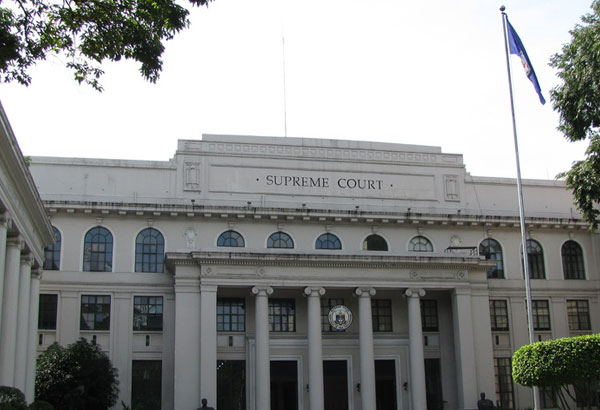SC asked to order agencies to resolve, prevent EJKs

In a 26-page petition filed on Sept. 22, a group led by lawyer Evalyn Ursua urged the high court to issue a writ of mandamus directing specific government agencies to perform their constitutional duties to prevent violations of the right to life and to investigate and resolve drug-related killings. File
MANILA, Philippines — The Supreme Court (SC) has been asked to order government agencies to resolve cases of extrajudicial killings under President Duterte’s war on illegal drugs.
In a 26-page petition filed on Sept. 22, a group led by lawyer Evalyn Ursua urged the high court to issue a writ of mandamus directing specific government agencies to perform their constitutional duties to prevent violations of the right to life and to investigate and resolve drug-related killings.
The petition also sought the imposition of proactive and institutional measures to prevent the killings.
Named respondents were Philippine National Police (PNP) chief Director General Ronald dela Rosa, Justice Secretary Vitaliano Aguirre II and Commission on Human Rights (CHR) chief Chito Gascon.
The petitioners alleged that the respondents have failed to investigate the killings.
“The respondents should be directed, through a writ of continuing mandamus, to perform their duties under the law, to take appropriate measures and to report to the court the actions and measures taken,” read the petition.
The petitioners said Dela Rosa, Aguirre and Gascon failed to carry out their mandate to avoid the unnecessary loss of lives in stamping out illegal drugs.
Stop the killings – Robredo
Vice President Leni Robredo called on the country’s leaders, including President Duterte, to refrain from making pronouncements that could encourage law enforcers to kill in the name of the war on drugs.
“It is our obligation as public servants not to say or do things that would give the impression that it’s OK to kill. Because if you say that it’s OK to kill, you might encourage more to do so,” Robredo said in a speech before students of the Concepcion Integrated School in Marikina yesterday.
She said the responsibility to alleviate crimes in the country lies with its leaders and the pronouncements they make.
Duterte earlier said the anti-drug campaign of the police has been in line with the rule of law.
The number of drug-related fatalities from May 10 to Sept. 14 has reached 1,529, according to reports.
“These (killings) must stop,” the Vice President said.
CHR tells gov’t: Walk the talk
Gascon has urged the Duterte administration to show its sincerity to the international community by implementing measures to ensure that the rights of Filipinos are not violated.
The CHR chief made the appeal after the government claimed victory following the review of its human rights record before the United Nations Human Rights Council (UNHRC) in Geneva, Switzerland last week.
“It is expected that the government would do its best to reflect a positive tack to the adoption of the third Universial Periodic Review before the UNHRC,” Gascon said.
“However, it cannot be disputed that the Philippine government refused to accept the specific recommendations pertaining to the most serious human rights violations such as extrajudicial killings and torture, including its continued refusal to allow the entry into the country of the UN special rapporteurs that could help shed light on the issue,” he added.
Gascon asked the government to allow the UN to establish offices in the country to monitor alleged cases of human rights violations.
He also urged the government to reconsider the 154 recommendations it rejected during the review, and sending an invitation without any condition to UN special rapporteur on extrajudicial killings Agnes Callamard.
‘Deadly drop boxes’
Human Rights Watch (HRW) slammed the PNP’s latest tactic in the war on drugs: drop boxes to collect the names of drug suspects in the communities.
The system was first launched in Barangay Valencia in Quezon City where police placed wooden boxes to gather the names of suspected drug pushers and users from residents who fear the risk of reporting.
Authorities in Roxas City and Pontevedra and Maayon towns in Capiz have also stationed drug drop boxes.
The group criticized the system, saying people whose names end up in a drop box could be included on the drug watchlist of the police without verification.
The HRW said the system could fuel arbitrary arrests of drug suspects.
PNP spokesman Chief Supt. Dionardo Carlos refused to comment on the matter. – With Helen Flores, Janvic Mateo, Rhodina Villanueva, Emmanuel Tupas
- Latest
- Trending




























